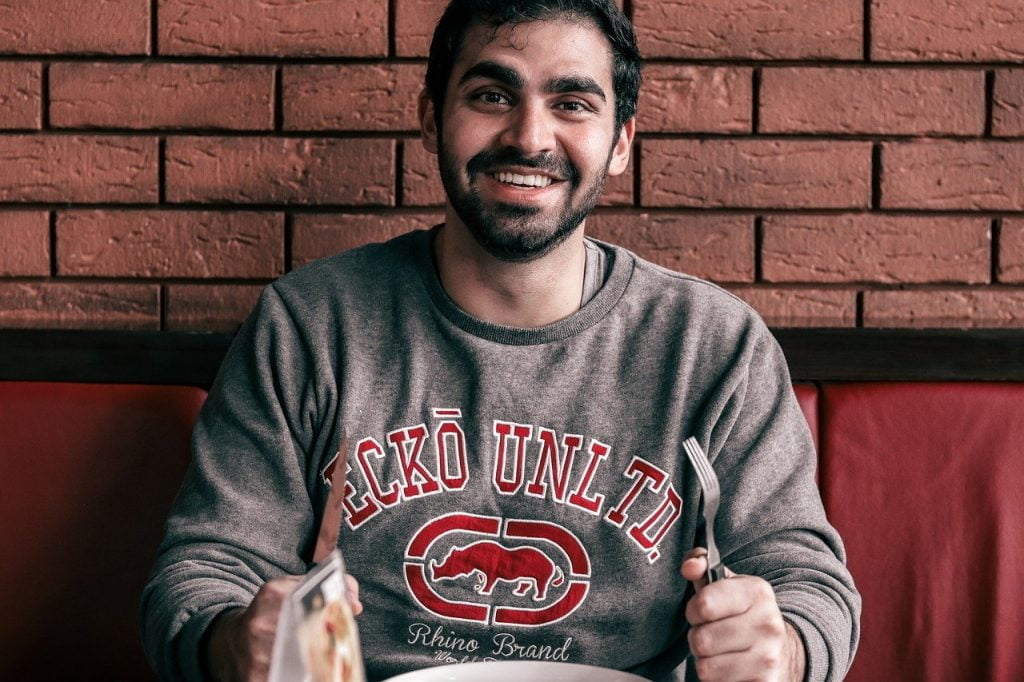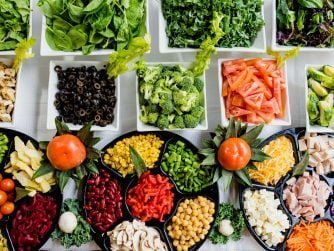Voice 1
Welcome to Spotlight. I’m Liz Waid.
Voice 2
And I’m Adam Navis. Spotlight uses a special English method of broadcasting. It is easier for people to understand, no matter where in the world they live.
Voice 1
The Fugu fish is extremely poisonous to humans. Some people say it is hundreds of times more deadly than the poison cyanide. And there is enough poison in one Fugu fish to kill 30 people. Would you want to eat this fish? It can be safe if it is prepared correctly. But if a person eats a piece of incorrectly prepared Fugu fish, he will die.
Voice 2
Preparing Fugu is a difficult job. Before a person can prepare Fugu, she spends at least two years studying under a master chef. She must pass a special Fugu test. The test is very difficult. One third of people taking the test fail.
Voice 1
Fugu is unsafe to prepare and eat. It costs a lot of money. And it can have a weak taste. But Fugu is very popular. So why would so many people want to eat it? Fugu is taboo.
Voice 2
Taboos are very important in any culture. A taboo describes something that is set apart. It is usually something that a person should not do for a particular reason. A taboo food is a food that most people will not eat. But a food that is taboo in one culture may not be taboo in another culture. But what makes food taboo in one culture and acceptable in another? Today’s Spotlight is on foods that are taboo.

Voice 1
People have strong opinions about what is good to eat and what is not. Fugu comes from Japan, but food taboos exist all around the world. For example, in many countries, people do not eat dogs. This is because people keep dogs as pets – as their animal friends. But in some countries, eating dog meat is not taboo. For example, in some parts of Asia, people eat dog meat. In these places, eating a dog would not be a taboo.
Voice 2
Some food taboos come from religion. What we eat is sometimes connected to what we believe. People eat cows in many parts of the world. But to Hindus in India, cows are taboo. The people there choose not to eat these animals.
Voice 1
Some taboos develop out of tradition. Food taboos can celebrate a common history and bring people together. Every February, the people of Iceland hold a celebration, called Thorrablot. This is a celebration of Iceland’s history and culture. And food is an important part of Thorrablot – especially taboo food. Usually, decaying food is an important taboo. Decayed food can have dangerous bacteria. But at Thorrablot, one of the important foods is called Hákarl. It is a decaying – or fermented – shark meat.
Voice 2
Sharks are large dangerous fish. Sharks are found in many places around the world. But in Iceland, the sharks contain many particular chemicals to protect them from the freezing water. These chemicals make the shark poisonous to people. So, to eat the shark meat, cooks must use an unusual method.
Voice 1
Traditionally, a person removes the shark’s head and insides. They set the shark on sand. Then they cover it with more sand and heavy rocks. This will press the liquids out of the shark’s body. It stays like this for six to 12 weeks. After the shark is cured like this, it is cut into long thin pieces. The pieces hang to dry for a few months. They develop a hard brown outer layer. It also has a particular smell. The shark meat is now fully fermented. The outer layer is cut off and the shark is cut into smaller pieces.

Voice 2
People say that when you are going to eat Hákarl, you should not smell it first. That is because the finished Hákarl smells like liquid human waste. But people say it tastes like cheese. Icelandic people say that eating the shark is a way to remember their history and culture. Even today, you can find Hákarl almost anywhere in Iceland — even in grocery stores.
Voice 1
Another reason people eat taboo foods is because they believe the foods will give them health benefits. For example, in Asian countries, some people eat the male sex organ of a bull, a male cow. This food taboo has a special effect. People believe it will give them a strong desire for sex. This thinking is not always based on modern medicine. Instead, it is part of a long tradition that connects eating well to good health. After all, food was the first medicine.
Voice 2
Not all food taboos have a tradition that goes back many hundred years. Until 1947, India was under British rule. During this time, children with one British parent and one Indian parent were rejected by both cultures. These rejected people formed a separate culture. It has its own rules about food. One special food is kutti pi.
Voice 1
Kutti pi is made from a taboo food – a fetus. A fetus is an unborn animal, taken from the body of its mother. Usually, people make kutti pi using a goat fetus. But people do not eat kutti pi often. It can only be made when a pregnant animal is killed. This food is so taboo that sometimes meat sellers will not admit to selling it. They will only deliver it in secret.

Voice 2
Food is important to us. It is easy to react to taboo foods with emotion. New or strange foods may be the most difficult thing to accept about a new culture. When we hear what other people eat, it is easy to judge them. It is easy to believe that since they eat strange things, they must be strange people.
Voice 1
But, we can remember that what people do is more important than what they eat. How people love is more important than what they cook. And the food they put in their mouth is not as important as the words that come out.
Voice 2
Would you eat kutti pi? What about decaying shark meat? Have you tried a strange food from another culture? Tell us what you think. You can leave a comment on our website. Or email us at contact@spotlightenglish.com. You can also find us on Facebook, YouTube, Instagram, and Twitter.
Click here to learn more about joining as a member!
Voice 1
Members hear more! We will tell about more taboo foods in exclusive videos for members of our YouTube channel. Members are thanked in every video, get access to exclusive content and PDFs of scripts, and can join our private Spotlight English Facebook group. If you are on Youtube, click Join below.
Voice 2
The writer of this program was Adam Navis. The producer was Liz Waid. The voices you heard were from the United States. You can listen to this program again, and read along with it, at www.spotlightenglish.com. This program is called “Taboo Food: Would You Eat This?”
Voice 1
Visit our website to download our free official app for Android and Apple devices. We hope you can join us again for the next Spotlight program. Goodbye!
Question:
What taboo foods do you have in your culture? Have you tried a taboo food from a different culture?








There are foods that are forbidden in our religion (Islam), such as drinking alcohol, pork, and the meat of dead animals that have not been slaughtered.
Ok
I am a korean and 56years old. My age is important. Because my father really loved dog. But he liked dog meat. It was common in1970 in Korea.
Dog meat give us a lot of power especially in summer. My parents age think like that. In those days young people disagree in Korea.
I can’t eat dog meat.
But I am not sure.
Dog meat
eat
do not eat
It depands on culture.
I am from Vietnam. There are so many taboo foods here. We do not only eat dog meat (though there is always an arguement about this), but also eat other strange foods like worm, snake, rat and unripe blood of duck and pig, etc. Though I am a Vietnamese, I dont dare to eat most of them.
Taboos food in my culture are cat meat and donky meat its taboo beacuse it makes many viruses in our bodies.i have never tried ataboo food from adiffrent culture.
Don’t eat taboo foods.
I didn’t try eat any taboos food, and there are many taboos food here because my religion. I am muslim and i can’t eat pork or dog or cat and any animals can eat meat that foods are taboo
i really like this one:
“we can remember that what people do is more important than what they eat. How people love is more important than what they cook. And the food they put in their mouth is not as important as the words that come out.”
Thank you Spotlight
I’m from KSA and I never ate these taboo food because of my religion (Islam ).
I believe that every food taboo is usually unhealthy for all , so we need to protect ourselves from these food.
And I’m from KSA hi my sister
in our religion, we cant eat predators like sharks it’s a food taboos, and I will never try to eat something forbidden in my religion
its incorrect to kill a pregnant animal just to ur desire! !! This is a crime ! And taboo food can causes many Diseases!!! Thank God im muslim we don’t eat this shit
I am come from Viet Nam. We usually eat dog meat, which is considered taboo in some countries. I never try a taboo in different cultures.
In my religion the taboo food is dead animals, meat pig and Alkhoul. I would not try this taboo food because i beleve it’s noyt healthy for my body. And also the people in my country don’t try this. We recpect our religion (Islam) and followe it about evry things.
Yeah , i felt happy when i saw your comment
In Islam we can eat any seafood..any fish.. but we have tapoo food like dog..cat.pork ..etc…
The Forbidden food in my culture is dogs. Pigs, dead animals that have not been slaughtered and more
No I have not tried it and I do not want to try it
I’m from Viet Nam. In my country, almost food are accept. There was a lot of people do ways to prevent eating dog meat, however, it doesn’t work
In my opinion, in the most taboo foods are eat dog meat. I come from Binh Dinh. In my home town, most of people don’t eat dog meat including me. With me, dog is very intelligent and friendly animal of humans. I think we are very cruel when we eat dog meat. So, i hope we don’t eat dog meat.
Hello, according the test the fugu fish is taboo food because it is very poisonous to the people, but in Youtube i see. The fugu is very popular in the world and some one comment it is so delicous. So another the reason eat it good for health, I think people eat it for curious about its taste
I had ate dog meat, it’s really delicious with acohol. But now, I don’t eat dog meat because dogs are intelligent and friendly animals. It have been human friends for millions years. I also hope people don’t kill any dog more for foods. And I think that we should be fair with all animals. Many animals service people then recieve a terible end – killed for foods. For examble, chickens give us eggs, bulls provide farm power, ect.
There is taboo food in Vietnam is duck fetus in its egg. I can eat it.
No, I haven’t eaten eat kutti pi and decaying shark meat ever. I don’t think I can eat them.
I have tried the fresh food of Japan. But I don’t like it, and will never try it again, because the taste of it is very terrible. I feel like vomitting when eat them.
In our Vietnamese culture, many people eat a lot of taboo foods such as rats, scorpions, larvae, insects, raw monkey brains, etc., especially dog meat. Although our country does not have any laws against eating it, these foods are taboo in some religions and cultures in other countries. I hardly eat those foods because those things are scary to me.
Dogs are considered taboo foods in my culture; people do not eat dogs. This is due to the fact that dogs make excellent pets and are very loyal; my family is extremely fond of animals and is dedicated to protecting theirs. I haven’t eaten a forbidden dish from a foreign culture yet, and I don’t intend to do so in the future.
In my country, eating fugu and dog meat is considered taboo. Due to the poisonous nature of fugu, I avoid eating it. Fugu’s deadly bite may cause immediate death. Eating dog meat is also controversial since it is not poisonous like fugu, but it is from a household pet. Dogs are a faithful animal that keeps thieves away from the house. They are also beloved by everyone. As a result, dog meat is considered taboo in Vietnam. Despite the fact that beef is considered a forbidden meal in India, it is a popular cuisine in Vietnam. We provide a wide variety of delectable beef dishes, such as “pho bo.” “Pho bo” is a Vietnamese dish that is well-known across the world. Have you ever tried this kind of cuisine?
I believe that any taboos in my religion will be bad for anyone.
In my culture we have some taboo food like pork because the Pig is nasty.
My name is maged. I am from yemen, espicialy from shabwa.
In my culture there is tapoo food called Lakam. The Lakam is made from the shark meat. I think the way to prepare the Lakam is similar to Hakal that made on island culture. However the taste of the Lakam is more salty and after you eats the Lakam you need to drink a large amount of the water.
I’m not sure if this is taboo in most Vietnamese families, but if you are served a whole fish in a fisherman’s house, never flip thhe fish over to eat from the other side. To eat the other side of the fish, simply remove the bone and proceed to eat the fish. The flipping of the fish is an extremely unlucky omen for fishermen, as it indicates that their ship may flip over the next time they go fishing.
No of course because it’s made from unborn animal goat and in my culture is taboo and in the Islam don’t prevent any thing but that for our benefit and I don’t think I’ve intended to try anther food is taboo from any country in the world that my opinion about what I learn it today and I think I have to know befor I leave my country to foreign country to know what I kind of food thay have
We should remove baboo food because it’s not only heathy but also demage pets. I love dog. I hate those who hurt them.
I’m Muslim
In Islamic culture , we should not eat pork , this is what allah said for us in Quran , And I think this is correct , pork is unclean meal to eat , we are really loving Islam
lam from Oman , taboo food in my in my culture pig meat because it makes different diseases.
l am from Oman , the taboo food in my culture is pig meat because it make different diseases
When I went to Peru, I tasted Cui, a kind of hamster. Cui is a tradicional food served at weddings. I found the meat tough and didn’t like it.
Actually there are to kinds of taboo foods in my religion I know the first is pork we as Muslims don’t eat anything made from pork cuz that’s forbidden in our religion and the other is alcohol as Muslims we can’t drink alcohol and we don’t want to thanks spotlight for this amazing podcasts
I’m from VN, my country is quite a lot of taboo food, but the more taboo , the more they like.
No I didn’t like to eat taboo food in any way
In my religion (Islam) the taboos foods is a wrong thing..and other foods like pork..alcohol drinks..animals that are dead..and sauvage animals.. All this things are rejected by our believes and hamdulah for the Islamic greatest
yes we do have taboo food like eat pork meat and kill animals with electrations and alcohol drink this is rejected in my religions , its taboo food islam .
no i have not tried because my religion stop me
Yeah I had taboo food.i have eaten beef curry.lol.it is a toboo in Hinduism.
Pork and alcohol are taboo foods in my cuture. I think I’ve never tried to eat taboo foods from other cultures. However, I like to try traditional foods from all around the world if they are not forbiden.
The taboo food in my country is pig meat. As you know, we are a muslim country, so due to religion belief, we cannot eat any food contains pig meat and we appreciate your religion a lot.
Sushi actually is not a strange food but for me it is I trid once time and it’s will be the last time I will try it
I think we do not have a taboo food.
No.
ON MY CLUTURE we have taboo food like pig and dead anaimals
Hello everybody reading this,
I haven’t tried any taboo food, but certanly I don’t think I dare to eat Fugu fish, I would be so worry thinking about the possibility that I could die that it was impossible for me to eat it. I won’t try either a goat fetus nor a decaying shark, I’m passionate about food but not that kind of food but typical food in countries such as currys in India, Ceviche in Peru, sushi in Japan and that kind of stuff, but food that smell bad or can kill me; not thanks.
I’m from Spain and I would say we don’t have here any taboo food, well now that I’m thinking about you all can cosider blood animals as a taboo food, for instance we prepare ‘morcilla’ (a sort of cold cut) with pork blood, maybe you contemplate it as a taboo.
I forgot to say that we eat offal, pork ears, cow snout, liver from pork or cow, hen crest, gizzard from poultry or sweetbread from lambs, I din’t consider this cuz I get used to eat it that I didn’t realize it may be strange for other cultures.